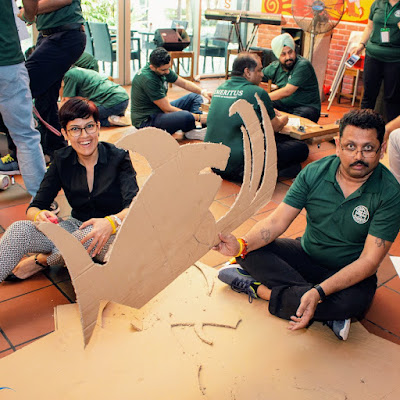Failure is undoubtedly one of the most commonly relatable and widely shared experience. And ironic as it may sound, success and failure are inseparable. An individual cannot expect to gain long lasting and phenomenal success until and unless he or she has had their fair share of crushing failures' in life.
Why do leaders fail?
Many would argue that tumbling leaderships can be blamed entirely on a wrong move at the wrong time or just a terrible turn of fate. But it takes more than bad luck to fail as a leader. According to business experts, following are some of the reasons that explain why do leaders fail;
Lack of adaptability
Failed leaderships can often be attributed to inability of the leaders to adapt themselves and their strategies to the changing needs of the world around them. An idea that might have made huge profits in the past would probably fail to deliver in a current scenario. Thus, the rigidity to alter their old ways and the failure to constantly learn, renew and improve their action plans have lead many to an irreversible downfall.
Lack of accountability
Lack of accountability
Leaders that have tasted huge success often fail at handling all that sudden surge of power and praise. They begin to consider themselves infallible and cannot be bothered about constructive criticism and accountability for theirs actions, which again is a fatal flaw.
Lack of communication
There is no ‘I’ in leader; which means that leaders are nothing without their teams. And leaders that lack proper and effective communication between their teams often fail to explain the members what is expected of them and what should be their goals. All that remains is ambiguous instructions, faulty discussions, lack of focus and below par performance; which not only reflects bad on the leaders but also undermines the growth of their team members.
Bouncing back from a failing leadership
Turning massive failures into massive successes is a skill that only a few have mastered but it's not entirely impossible. Many people have made some outstanding comebacks just by accepting their failures', realising their flaws and making an honest effort towards self improvement.
Henry Ford, the man who revolutionized industrial production in 20th century went bankrupt five times and built two companies that were a complete failure before establishing one of the most successful car companies in the world.
Steve Jobs too wasn’t an instant success. It took him a humiliating resignation from a company he himself founded and several years of crushing failures to regain the leadership of Apple and introduce the breakthrough technical innovations like the iPhone, iPad, iPod etc.
All this accounts for the fact perseverance, dedication and the intellect to learn from past mistakes can work wonders for any one who promises to never give up.
Righting the wrongs: How can leaders help their teams
Righting the wrongs: How can leaders help their teams
An effective and powerful leadership is bound to improve team performance, motivation and growth. In order to push their teams to give their very best leaders should do the following:
1) The first thing leaders can do to help their team is to allow them to fail and provide them the confidence to learn from their mistakes while being innovative and practical.
2) Empathetic leaders are the most successful in getting their teams to perform better. If the members know that the leaders have their back and they could easily relate to them, it could make a world of difference in company’s culture.
3) Having an open and honest communication with the team members is extremely important for establishing a stellar leadership. Effective communication helps to outline collaborative and focused goals, eliminates workplace politics and accounts for better team role assignment.
Thus, if you a leader struggling to overcome the towering pile of workplace problems and feel that a good rapport with your subordinates can help ease out the situation then you should try out Jambar team building Singapore. We specialise in team building activities for work that are not only uniquely interactive but can guarantee a marked improvement in team engagement and coherence whilst helping to build a positive workplace culture where the leaders and team members work collaboratively to pave way for collective success.

